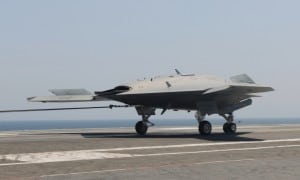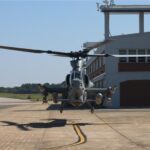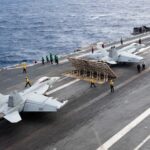
The Naval Air Systems Command (NAVAIR) released the final request for proposals (RFP) for the MQ-25 Stingray unmanned aircraft system (UAS) tanker to four main competitors on Oct. 4, the Navy told Defense Daily.The air systems engineering and manufacturing development (EMD) program solicitation details were issued to Boeing [BA], General Atomics, Lockheed Martin [LMT], and Northrop Grumman [NOC] based on laws allowing for limited competition when there are a limited set of responsible sources and others will not satisfy requirements.The Stingray’s…

 By
By 











